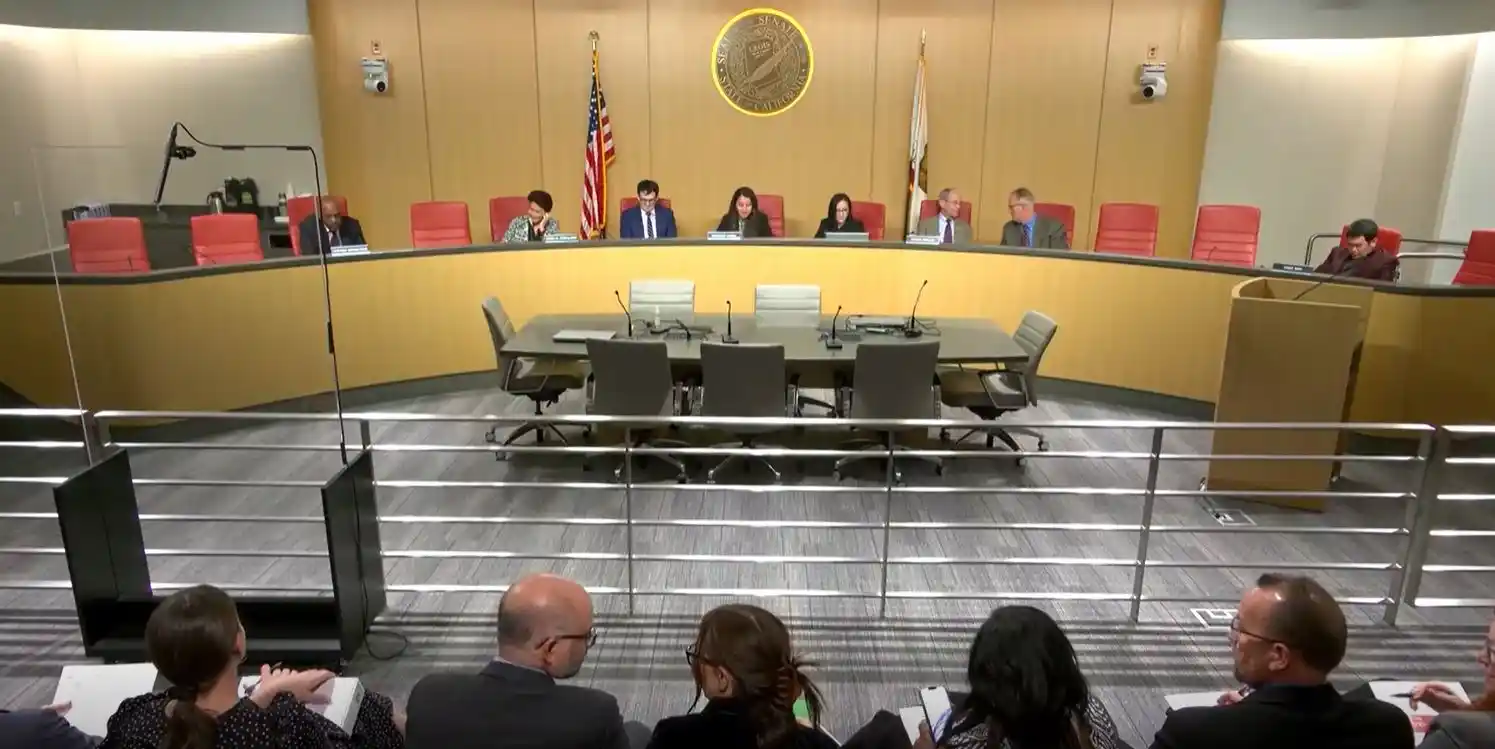In a rapidly evolving digital asset landscape, understanding the nuances of cryptocurrency taxation and regulation is paramount. Recently, BitAML’s President, Joe Ciccolo, sat down with Patrick Camuso CPA, a leading crypto tax expert, to discuss the latest developments, challenges, and what the future holds for individuals and businesses navigating these waters.
Joe: Patrick, thank you for joining us today. As we dive into the complexities of cryptocurrency tax regulations, can you first shed some light on the recent discussions surrounding the crypto reporting rule 6050I and its implications for the digital asset space?
Patrick: Absolutely, Joe. The crypto reporting rule 6050I has garnered significant attention, particularly with the IRS’s recent announcement indicating a pause to refine the regulations. This rule is a part of a broader trend towards enhanced KYC (Know Your Customer) practices, data collection, and a move away from anonymity in transactions. Essentially, it mandates that trades or businesses receiving over $10,000 in a transaction report certain KYC information to the IRS. This is not about imposing additional taxes, but ensuring transparency in transactions exceeding this threshold.
Joe: With the IRS providing transitional guidance through announcement 2024-4, how should individuals and businesses prepare for eventual compliance?
Patrick: The key is preparation. Although the IRS has paused to offer further clarity, it’s crucial for businesses and individuals to ready themselves for reporting. Engaging in discussions with a CPA or tax advisor to understand the criteria is essential. For transactions that might meet the reporting threshold, gathering necessary information now will position taxpayers for compliance once the IRS finalizes the regulations.
Joe: Given these developments, what best practices would you recommend for maintaining records and ensuring compliance?
Patrick: In the current state of flux, manual collection of information is advisable. This includes collecting social security numbers, EINs, names, and addresses for transactions over the threshold. As the regulatory landscape evolves, I anticipate more automated solutions within accounting and payment systems to help streamline the process. But for now, diligence in manual record keeping is the best strategy.
Joe: Beyond the immediate concerns with rule 6050I, what broader tax compliance challenges do you see your clients facing in this rapidly changing environment?
Patrick: The challenges are manifold, stemming from the fast-paced development of tax regulations in the crypto space. Staying informed and compliant is paramount, as failure to do so can lead to significant repercussions. The primary challenge is integrating a robust accounting and tax system that can handle the complexities and ambiguities of crypto transactions. For digital asset investors and those involved in DeFi and NFTs, understanding tax obligations and maintaining accurate data is crucial. The landscape is evolving, and with it, the need for clear guidance and compliance strategies becomes increasingly important.
On Web3 and NFT Taxation Challenges
As we shift deeper into the specifics of cryptocurrency reporting and compliance, it’s clear that the landscape is reorganizing in real time beneath our feet. The emergence of Web3 technologies and the explosive growth of NFTs bring new dimensions to this complex scenario.
Joe: Patrick, diving deeper into the investor side of things, it seems there’s a significant gap in both fundamental knowledge and compliance. Can you expand on the challenges investors face, especially those new to the crypto space?
Patrick: Absolutely, Joe. The investor side often struggles with the basics of tax considerations, which leads to widespread non-compliance. We frequently find ourselves addressing tax filings as far back as 2016 due to this lack of understanding. The IRS estimates only a 25% compliance rate, highlighting a critical need for better education and data management, especially with the complexities introduced by defunct exchanges and obscure blockchain protocols.
Joe: Shifting our focus to Web3 companies, what unique accounting challenges do they encounter?
Patrick: Web3 companies are navigating a whole new terrain, where traditional accounting systems don’t necessarily fit their operational model, especially when it comes to on-chain activities. The biggest hurdle is establishing an accounting system that accurately reflects their unique transactions, from raising capital to paying employees in crypto. This often involves significant cleanup and restructuring efforts for startups new to our tax accounting and advisory firm.
Joe: With the rise of NFTs, how are tax regulations evolving, particularly at the state level?
Patrick: The tax landscape for NFTs is rapidly evolving, with states like Washington leading the charge in applying sales tax to digital products, including NFTs. This not only has implications for current sales but can also be applied retroactively, posing a significant risk for businesses. Other states are beginning to follow suit, indicating a trend towards more stringent tax regulations for NFTs.
Joe: Education seems to be a cornerstone of your approach. How do you ensure your clients and the broader industry are well-informed about these nuances?
Patrick: Education is key. Through our website, blog, YouTube channel, and podcast, “The Financial Frontier,” we strive to provide a wealth of information. From practical advice on managing tax liabilities to regular updates on regulatory changes, our goal is to keep our clients and the community informed and prepared.
Joe: As we explore the intricacies of Web3 businesses further, can you speak to the challenges they face with state-level taxation, especially concerning NFTs?
Patrick: The main challenge for Web3 businesses is navigating the complexities of state-level taxation. With the precedent set by Washington, it’s clear that sales taxes on NFTs will become a significant issue. Businesses need to prepare for this by establishing proper accounting and compliance systems to handle these taxes effectively.
Joe: It sounds like there’s a lot of work to be done in terms of regulation and compliance, especially with the dynamic nature of crypto and NFT markets. Any final thoughts on how businesses and investors can stay ahead?
Patrick: Staying ahead means staying informed. Businesses and investors should engage with knowledgeable professionals who can provide tailored advice. Keeping abreast of regulatory changes and understanding their implications is crucial. As the landscape continues to evolve, proactive engagement and preparation will be key to navigating these complex waters successfully.
On State Taxation and the Wayfair Decision: Implications for Digital Money and Cryptocurrency Taxes
The conversation expands to the broader implications of state taxation in the digital age. The landmark Wayfair decision has set a new precedent, impacting businesses across the spectrum, including those operating within the cryptocurrency domain.
Joe: Patrick, diving into the complexities of state taxation, particularly following the Wayfair decision, how does this change the landscape for businesses in the crypto space?
Patrick: The Wayfair decision, while a landmark ruling for e-commerce and interstate sales, ushered in the concept of economic nexus, fundamentally altering how businesses address state sales tax obligations. For those in the realm of digital assets, including cryptocurrency and NFTs, the implications are profound and complex. Unlike traditional e-commerce, the focus shifts toward the intricacies of digital assets and on-chain transactions, navigating uncharted waters of tax compliance.
This evolution requires crypto businesses to adapt by deeply understanding the nexus they create through digital transactions, transcending the conventional retail model’s sales tax expectations. The requirement to obtain a sales tax ID and comply with varied jurisdictional tax obligations remains. However, the challenge intensifies as these businesses must now interpret and apply these rules within the decentralized and often anonymized context of blockchain transactions. This significant shift in responsibility positions businesses at the forefront of a new era of tax compliance, navigating the nuanced landscape that the aftermath of the Wayfair decision and the emerging focus on NFTs and digital assets present.
Joe: With states like Washington setting a precedent for handling uncollected sales taxes, what should businesses be wary of?
Patrick: Washington’s approach serves as a cautionary tale. If a business fails to collect customer information and sales tax, the state may default all sales to the seller’s location, holding them accountable for the tax. This puts the onus on businesses to diligently collect customer data to accurately apply sales taxes. It’s a clear signal that avoiding customer data collection won’t absolve businesses from their tax obligations.
Joe: Reflecting on your experience, how do you see the crypto industry adapting to these tax obligations, especially with Web3 businesses and the emphasis on anonymity?
Patrick: The crypto industry is at a crossroads, particularly with the rise of Web3, where anonymity has been a cornerstone. However, states like Washington are already anticipating this by setting guidelines that essentially disregard anonymity for tax purposes. My experience filing taxes for individuals deep into crypto since as far back as 2016 shows a trend — the industry must reconcile its preference for pseudonymity with the realities of state tax compliance. This adaptation is crucial for the continued growth and legitimacy of Web3 businesses.
Joe: Turning our attention to the spot Bitcoin ETF and its implications, can you elaborate on what this development means for the crypto tax landscape?
Patrick: The spot Bitcoin ETF, while not introducing major new tax considerations, signifies a broader acceptance and integration of crypto into traditional financial systems. For investors, it means engaging with crypto in a more familiar format, akin to buying into a trust. This could influence the approach to tax liabilities, making it essential for investors to understand the nuances of how these ETFs operate and their potential tax events, especially as these investments are managed within a trust structure.
Joe: Lastly, in an era where regulatory changes are rapid, what advice do you have for our readers to stay informed and compliant?
Patrick: The key is proactivity and engaging with knowledgeable professionals. The crypto tax landscape is evolving, and staying ahead requires not just following the news but understanding the implications of these changes on your specific situation. Tools like Google alerts for crypto tax news can be helpful, but nothing replaces the tailored advice from a CPA or lawyer versed in crypto regulations.

Regarding Cryptocurrency Accounting Best Practices and State-Level Taxation
Amidst these regulatory shifts, the technical aspects of cryptocurrency accounting remain a critical, yet often overlooked, element. Understanding the correct accounting methods is not just beneficial but essential for ensuring compliance and avoiding potential audits.
Joe: Patrick, you’ve highlighted significant concerns regarding accounting methods for reporting cryptocurrency assets. Can you expand on the risks associated with the popular choices of FIFO and HIFO among investors?
Patrick: Absolutely, Joe. The choice of accounting method is crucial in cryptocurrency reporting. While many investors prefer HIFO for its tax advantages, this strategy can lead to complications, especially with the impending broker regulations which are likely to standardize FIFO as the default method. This disparity can create a reconciliation nightmare during tax reporting. More critically, HIFO isn’t technically recognized as a valid accounting method for digital assets. The only permissible methods are FIFO and specific identification, provided specific requirements are met. Applying FIFO across an entire portfolio without proper documentation and consideration for each asset’s unique circumstances can result in significant audit risks.
Joe: How do these accounting choices impact the accuracy of tax reporting?
Patrick: Investors often manage assets across multiple platforms, mixing and merging them throughout the year. This practice complicates accurate reporting, as selecting HIFO post-facto can misrepresent transaction histories, potentially leading to discrepancies if audited. It’s a common issue that many don’t fully appreciate until faced with IRS scrutiny. Moreover, failure to perform due diligence on ending cost basis data can render subsequent year’s reporting inaccurate, compounding errors.
Joe: Shifting gears slightly, what’s your perspective on the role of crypto exchanges and platforms in providing transaction information to their users for tax purposes?
Patrick: As we move towards 2025, I anticipate increased reporting requirements for exchanges. Currently, while exchanges do offer transaction histories, comprehensive 1099 reporting is not universally adopted. This gap in data provision can lead to inaccurate tax reporting by users, especially where asset transfers between wallets and platforms are not fully accounted for. The challenge will intensify as the IRS and state tax authorities tighten compliance and reporting standards.
Joe: With the IRS ramping up its focus on cryptocurrency, do you believe there’s a shift towards more stringent enforcement?
Patrick: Definitely. We’re transitioning from a stage of broad regulatory guidance to more concrete enforcement actions. This includes leveraging tax software and consultants to scrutinize taxpayer information more closely. For those attempting to navigate these regulations without clear documentation or proper adherence to recognized accounting methods, the risks are significant. It underscores the necessity for rigorous compliance and recordkeeping practices.
Joe: Before we conclude, any advice for state tax authorities on enhancing their engagement and enforcement in the crypto space?
Patrick: State authorities can learn from the IRS’s proactive stance. For sales tax enforcement, particularly with emerging assets like NFTs, adopting clear guidance similar to Washington’s can streamline compliance and enforcement. It’s about creating a framework that anticipates the industry’s nuances, ensuring that tax obligations are clear and enforceable. The key is balancing regulation with the need for innovation within the crypto sector.
Exploring the Taxation Landscape of Crypto with Patrick
As the discussion unfolds, it becomes evident that navigating the crypto taxation landscape requires vigilance, adaptability, and a proactive stance. Patrick offers further insights into enforcement trends and the role of decentralized organizations.
Joe: As we delve deeper into the complexities of state-level enforcement and the unique challenges of decentralized organizations, Patrick shares further insights into the evolving world of crypto taxation and regulation. Patrick, could you elaborate on how states might tackle the challenge of enforcing tax compliance, especially with the advent of technologies like DAOs?
Patrick: The challenge for states in enforcing tax compliance, particularly with crypto, lies initially in data collection. The IRS’s approach, focusing on gathering information through mechanisms like John Doe audits, sets a precedent. States likely need to develop methods to access similar data to effectively enforce tax laws on crypto transactions, including capital gains and income that might be underreported.
Joe: With sales tax enforcement becoming a pivotal issue, especially for digital assets like NFTs, how do you see states navigating this complex landscape?
Patrick: Sales tax enforcement for digital assets, including NFTs, presents a unique challenge. States like Washington have taken the lead by applying sales taxes to digital products, potentially setting a template for others to follow. The key is structuring guidance to ensure that taxes default to the state when sellers do not collect the buyer’s information. This approach simplifies auditing and could serve as a model for other states to ensure compliance.
Joe: Shifting gears a bit, DAOs have been a hot topic in your discussions. What are the primary concerns and challenges surrounding DAOs, especially from a legal and tax perspective?
Patrick: DAOs present a unique set of challenges, primarily due to their lack of a formal legal entity structure. This absence poses legal liability risks for members and complicates accounting and tax reporting. Without a defined entity, determining who is responsible for tax obligations becomes difficult. Some states are beginning to address this by proposing new entity structures specifically designed for DAOs, which could pave the way for clearer compliance and operational guidelines.
Joe: As we wrap up, could you share any final thoughts or advice for our readers to navigate the fast-changing regulatory environment of cryptocurrency and blockchain?
Patrick: Staying informed and proactive is crucial in this rapidly evolving field. Engaging with knowledgeable CPAs and lawyers who understand the intricacies of crypto taxation and regulation is vital. Additionally, utilizing a variety of information sources and setting up alerts for key regulatory developments can help individuals and businesses stay ahead. The landscape is complex, but with the right resources and guidance, navigating it becomes much more manageable.
Navigating the Currents of Crypto Taxation and Regulation
Our conversation culminates in a reflection on the broader trends in crypto taxation and regulation. Patrick shares his perspective on the growing importance of tax compliance in the crypto community and offers advice for navigating the future.
Joe: As we conclude our insightful discussion, Patrick, the current tax season has put a spotlight on crypto regulations. It seems like the community is paying more attention to taxes now than ever before. What’s your take on this shift?
Patrick: Absolutely, Joe. The landscape has indeed shifted. The combination of heightened regulatory scrutiny and prominent media coverage has made tax compliance a top concern for the crypto community. It’s a stark departure from the so-called “Wild West” days. The importance of understanding and adhering to tax laws has never been clearer, which is why education and proactive management in crypto taxation are critical.
Joe: It’s commendable to see your efforts in educating and guiding the crypto community through these complexities. As we wrap up, could you share any final insights or upcoming projects you’re excited about?
Patrick: I’m deeply involved in ensuring the community stays informed and compliant. Beyond the regular content we produce, we’re exploring deeper into state-level taxation challenges and DAOs’ unique position within the legal and tax frameworks. There’s also a book in the pipeline, aimed at shedding light on these issues further, drawing parallels with the early days of crypto taxation and projecting what lies ahead, especially concerning NFTs and their tax implications.
Joe: The proactive approach to tackling the sales tax issue, especially with NFTs, is fascinating. How do you see states like California responding to these challenges?
Patrick: States are gradually recognizing the need for clear guidance and regulation, especially for digital assets like NFTs. The example set by Washington could serve as a blueprint, emphasizing the need for a robust sourcing hierarchy to address sales tax compliance. It’s about finding a balance that ensures compliance while fostering innovation in the crypto space.
Joe: As we part ways, any advice for our readers on navigating the crypto taxation landscape?
Patrick: Staying informed is key. Engage with professionals who can provide tailored advice and keep an eye on regulatory developments. Tools like Google Alerts for crypto taxation topics can also offer timely insights. Ultimately, having trusted advisors is invaluable in translating broad regulatory trends into actionable strategies for your specific situation.
Joe: Patrick, your expertise and dedication to demystifying crypto taxation are invaluable to our readers and the broader community. Thank you for sharing your insights and for your continued work in this space.
Patrick: My pleasure, Joe. The crypto world is ever-evolving, and I’m passionate about helping individuals and businesses navigate its complexities. Looking forward to our next conversation and the continued journey in this exciting field.
Joe: To our readers, stay tuned for more updates and make sure to follow Patrick’s work for the latest in crypto taxation and regulation. Whether you’re a seasoned investor or new to the crypto world, understanding the tax implications is crucial for everyone involved.
Our thanks to Patrick for shedding light on the intricate world of cryptocurrency taxation. If you’re looking for more advice or want to reach out to Patrick, check out camusocpa.com for expert guidance or to set up a consultation.
Staying On Top of Regulations and Compliance
Here at BitAML, we believe compliance is a team sport. This holistic, community-minded approach allows us to partner with experts across the risk management spectrum such as Patrick, as well as professionals like Brian Nelson, a crypto surety bond specialist at Alpha Surety, to share important aspects of crypto regulatory compliance that we don’t necessarily cover here at BitAML.
Additionally, the BitAML team can assist with all your AML, consumer protection, cybersecurity, anti-fraud, and other compliance needs. Reach out today, for a free consultation. Connect with BitAML today to gain critical insights and tools for maintaining compliance and making informed decisions in your crypto ventures.


